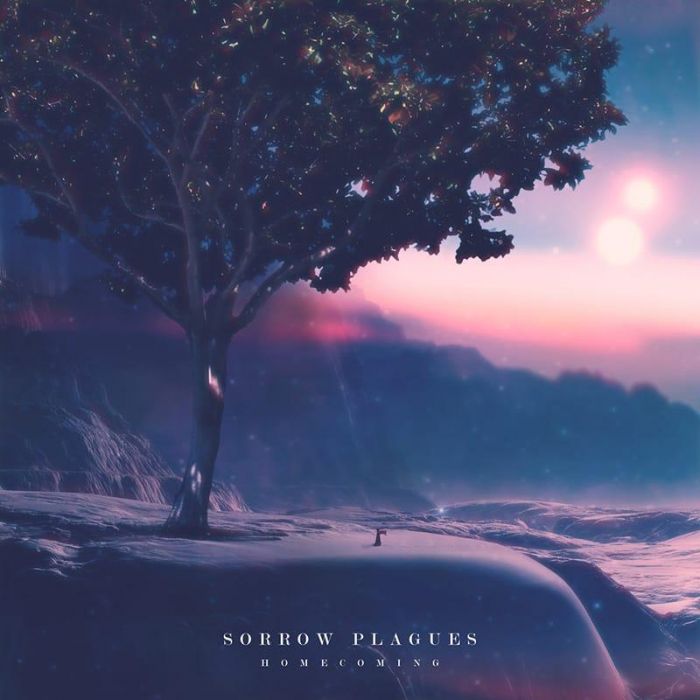Homecoming by Sorrow Plagues (Review)

I confess, the whole reason I started listening to Homecoming was because I thought “Sorrow Plagues” was a pretty cool band name, one that’s enigmatic, melancholy, and pretty bad-ass. Then there was Homecoming’s cover art, which depicts a small figure against a snowy, pastel-colored alien landscape. (Imagine the video game Journey set in a winter wonderland rather than a vast desert.)
Between those two things, I wasn’t sure what to expect when I clicked “Play.” Sorrow Plagues plays that seemingly contradictory sonic blend termed “blackgaze” (i.e., a combination of black metal and shoegaze). Much has been written about how those two seemingly disparate genres actually complement each other because of their shared focus on overwhelming the listener with massive walls of sound. Which is certainly the case here.
But though Sorrow Plagues can give the likes of Deafheaven and Alcest a run for their money, their music contains a few delightful surprises that buck listener expectations. Yes, there are anguished screams, blast beats, and guitar crescendos a-plenty. However, “Irreversible” packs in some wonderfully glammy riffage and later, the title track blends somber post-rock atmospherics à la Mono with soulful saxophone.
And despite the band’s black metal influences, the lyrics — which, given the genre, are barely discernible amidst the throat-rending screams — are often positive and uplifting as the album’s narrative charts a path of personal recovery in the midst of trauma, betrayal, and adversity. (Sample lyric: “Against the forces that seem so overwhelming/I will not lose direction/I will not lose sight/I will not give in.”)
I do have one slight quibble with Homecoming, though: the mix frequently leaves the drums sounding flat and thin, especially when compared to the clarity of the music’s other elements. This is particularly true on songs like “Departure” and “Disillusioned.” Perhaps this was a conscious choice, a nod to black metal’s traditionally lo-fi aesthetic. In any case, it diminishes the fullness of the band’s sonic onslaught, which is considerable but could be even more so.